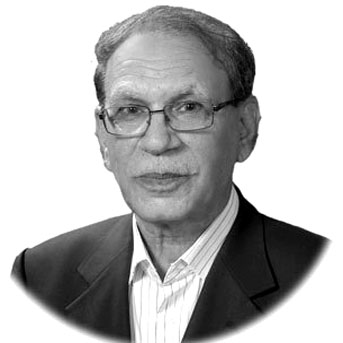Mohammad Jamil
AFTER many prominent MPAs/MNAs of PML-N met Chief Minister Punjab Usman Buzdar the other day, PML-N, Mian Nawaz Sharif and Shahbaz Sharif have assigned Maryam Nawaz the task to save the party from disintegration. The MPAs had assured ‘unconditional’ support to the Buzdar government, whereas the CM gave them assurance of due respect and dignity. This is the first meeting of a group of opposition MPAs with the Chief Minister, whose details have been made public; thus giving a clear indication of the formation of a Forward Bloc in the PML-N. All the MPAs, who called on Buzdar, expressed confidence in his leadership as well as in the leadership of Prime Minister Imran Khan, said a press release issued by the Punjab government last week. It was also decided during the meeting to continue working jointly to serve people of the Punjab province.
When Opposition Leader in Punjab Assembly Hamza Shahbaz reached the Punjab Assembly to attend the PA session, he was asked to comment on the development. He said such efforts were also made in the past, which proved futile, as the PML-N is not a selected party but has roots among the masses. Mian Nawaz Sharif and Shahbaz Sharif are in London, and Maryam is not delivering fiery speeches anymore; rather she is quiet so that she is allowed to leave the country to join her father. This has resulted in a lot of confusion in the party, as there is a perception that they are not likely to come back to Pakistan. Apparently Nawaz Sharif has abandoned his narrative of confrontation with the establishment to showcase good conduct, yet PML-N members feel that Nawaz Sharif or for that matter Maryam Nawaz will not be able to save the party from split up.
In fact, in Senate elections, the tone for defections was set. On 07 March 2018, the Election Commission of Pakistan had announced that it would probe the allegations of horse-trading in the Senate elections. It had served notices included PML-N’s Information Minister Mariyum Aurangzeb and Ameer Muqam, as well as MQM-P’s Kh. Izhar. Pak Sarzameen Party’s Raza Haroon was also asked to appear before the Commission. In May 2018, the PTI had expelled party’s 13 Khyber Pakhtunkhwa MPAs over allegations of horse-trading in Senate elections. According to Khyber Pakhtunkhwa Chief Minister’s spokesman at the time Shaukat Yousafzai, as many as 20 party’s MPAs were facing allegations of selling their votes in Senate elections. He had added that show cause notices had been issued to all concerned for investigation.
Once again there were allegations of horse trading when in August 2019 the opposition’s no-confidence motion against Senate Chairperson Sadiq Sanjrani was presented. Only 50 Senators voted against Sanjrani, whereas the opposition needed at least 53 votes to de-seat Sanjrani, despite the fact that opposition had numbers to de-seat Sanjrani. Forty-five votes came in his favour and five were rejected; thus Sanjrani retained the chairmanship of the Senate. Changing of parties, defections and voting against the party line has been a norm since inception of Pakistan. A lot of key Pakistani politicians had defected during the mid-1950s from the Muslim League to form the Republican Party, perhaps the first King’s party in country’s political history. The intra-Muslim League divisions had then led to the formal formation of two separate political parties, namely the Muslim League (Council) and Muslim League (Convention) during the military regime of General Ayub Khan.
With the help of certain politicians, Ayub Khan had managed to become the President of Convention Muslim League. However, before every election, political parties start their hunt for electables; compulsive renegades and turncoats weigh their options carefully, walking out from one fold over to the other to brighten their electoral prospects. Political parties open up their gates wide open for the entrance of opportunistic politicos. In entrenched democracies, people in general and politicos in particular join a political party on the basis of its agenda.
If they feel that the party leadership deviates from its program or fails to uphold the principles they stand for, they wage struggle within the party or leave the party. However, in Pakistan, switching loyalties is more of a norm, as most politicians are opportunists and master political strategists. When they feel that prospects for a particular party to come into power are bright, they desert their party to join that party. After late general Zia-ul-Haq’s Martial Law, some of the stalwarts of the Pakistan Peoples Party ditched their party; of course members of other parties also joined the new party. When Muhammad Khan Junejo’s government was dismissed, a new faction of the Muslim League under the name and style of PML-N emerged, and was twice in power in 1990s but could not complete either term, as the government was sent packing by the President under section 58-2(B).
On 12 October 1999, when PML-N government was overthrown by General (R) Pervez Musharraf, and Mian Nawaz Sharif went into exile, many of its leaders joined PML-Q. Mian Nawaz Sharif had vowed not to accept the turncoats come what may, but PML-N had taken in its fold quite a few turncoats. Similarly, the PPP also accepted those who once supported, aided and abetted the military dictator. In the post-Zia period, especially the 1990s, deceptions, desertions and defections continued during the intense tug-of-war between the PPP and the PML-N. Large-scale defections were witnessed during General Pervez Musharraf’s regime. A significant section of the PML-N had defected just before the 2002 general election to form the PML-Q, another king’s party. Similarly, a good chunk had deserted the PPP to form the PPP-Patriots. It appears that history will repeat itself and Nawaz Sharif would not be able to save the party from further division.
—The writer is a senior journalist based in Lahore.










